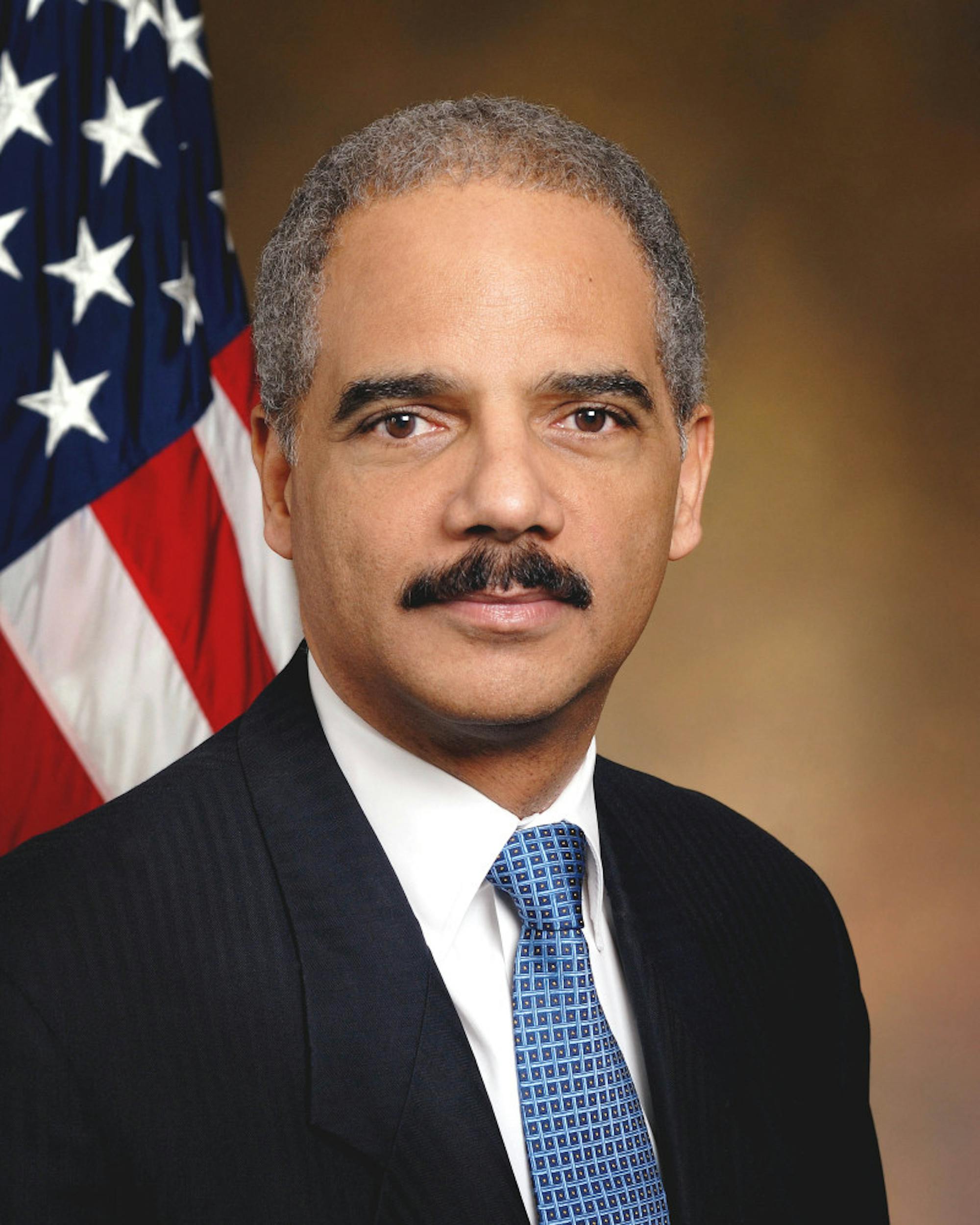Former U.S. Attorney General Eric H. Holder Jr. spoke to members of the Tufts, Medford and Somerville communities last night at Breed Memorial Hall about his experience as the leader of the Department of Justice and political and legal issues. The event was hosted as part of the Jonathan M. Tisch College of Civic Life’s Distinguished Speaker Series and was moderated by Jake Maccoby (A’09), Holder’s former speechwriter and communications advisor.
Holder is the 82nd Attorney General of the United States and the first African American to hold that office. He served as attorney general from 2009 to 2015. In addition, Holder's experience in government spans over 30 years as Deputy Attorney General, U.S. Attorney for the District of Columbia under President Bill Clinton and as judge of the D.C. Superior Court under President Ronald Reagan. He currently serves as chairman of the National Democratic Redistricting Committee.
Maccoby first asked Holder about how his experiences prior to becoming attorney general shaped his career and prepared him for the challenges he faced on the job.
“There is nothing that really prepares you for the job of attorney general ... but the experiences that I had as a line lawyer in the Justice Department, as a judge, as a U.S. attorney, as deputy attorney general, all gave me different perspectives on different parts of the criminal justice system,” he said.
He indicated that his experiences greatly influenced policies for the Obama administration and the Justice Department. Holder acknowledged that they shaped his arguments as a judge in Washington, D.C., specifically, during the "crack wars." He gave a brief example of how his experiences as a judge affected his life as attorney general.
“I saw substantial numbers of young black men who had been sent to jail for what I thought were disproportionately long periods of time, as a result of the sentencing guidelines, and so I came in thinking as attorney general ‘I’m going to try to use the power I have to focus on criminal justice reform,’” he noted.
Holder asserted that it is important to think about the ways in which people can be kept out of the criminal justice system and how the government can ease the reentry process for formerly incarcerated individuals.
Maccoby also asked Holder about his relationship with Obama and his ability to maintain a commitment to an independent Department of Justice, as the U.S. attorney general at the time.
“The Justice Department is a fundamentally different cabinet agency than any other department in the executive branch. You have the power to put people in jail ... you have the power to take a life and those are the toughest decisions that an attorney general has to make,” Holder said.
He also explained that, given all that power, he had to ensure to insulate the Department of Justice from politics and emphasized that there needed to be a distance between the department and the White House. Holder also noted that his relationship with Obama changed after he acquired the title of U.S. Attorney General.
He was later asked about some of the most difficult experiences he had to make as attorney general. Holder immediately noted death penalty determinations.
“You know if you say you seek the death penalty, in most cases or the overwhelming number of cases, it is totally clear you can get the death penalty,” he said. “The notion that I put my signature on a piece of paper means that I am potentially going to sanction the extinguishing of a life ... those are the toughest decisions.”
Toward the end of the event, Maccoby asked Holder to share any advice he had for people who seek to invoke change. Holder declared that it is important for people to identify issues about which they feel most passionate.
“My advice would be to commit yourself to solving them [issues] and to try to get as much done as you possibly can, and if you can’t get it done, certainly leave a foundation for somebody who will probably get that baton over the line,” he said.
He noted that age and youth are not excuses to create change because everyone has the power to make a difference.
Holder also spoke about his father and the immense challenges he faced as an immigrant who came to this country and proudly served in World War II.
“While in uniform he [father] was discriminated against in North Carolina and told to get to the back of the bus or train and in Oklahoma, told to go to the back of the lunch counter,” he said. “I think about the America he had and the sacrifices that he made so that his son might have the chances he did not.”
Former US Attorney General Eric Holder speaks about career in government

The 82nd United States Attorney General Eric Holder spoke at Tufts on Nov. 21.





